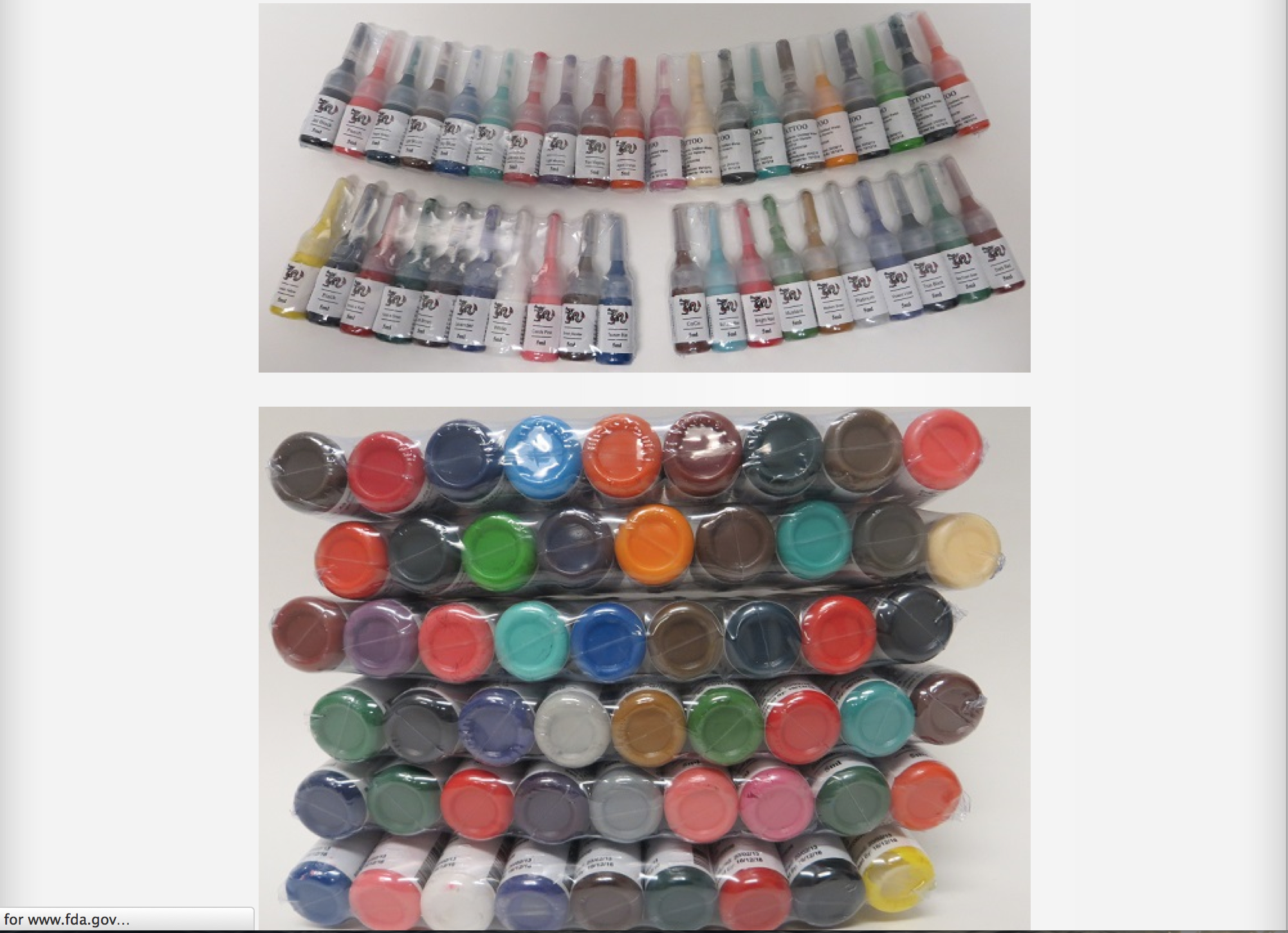WASHINGTON — Potentially dangerous tattoo inks and needles from a California-based company, White & Blue Lion Inc. are being voluntarily recalled due to pathogenic bacterial contamination, the U.S. Food and Drug Administration announced Monday.
In a news release issued through the FDA, White & Blue Lion said the use of the tattoo products “may cause bacterial infection and can lead to sepsis, a potentially life-threatening complication of an infection.”
The FDA said there has only been one report of illness from the contaminated tattoo supplies so far. It could not release information regarding the individual’s current condition.
A spokeswoman for White & Blue Lion, Inc. said the Los Angeles-area firm is “processing the recall now” and is no longer selling tattoo ink lot number OR20036 and needles lots 201308, 201307, 201312, 201402, 201311 and 201310.
The inks and needles were sold in tattoo kits and the inks were also sold separately through www.amazon.com. It was not clear Monday how many needles and inks were sold prior to the recall.
Tattoos are popular but risky. In the process of tattooing, the needle breaches the skin, which could lead to skin infections and other complications if supplies are not properly sterilized.
Cynthia Rudzis, owner of Cirque du Rouge tattoo shop in Washington D.C., said buying kits online from suppliers who “do not know the tattoo business” leaves the consumer vulnerable to such problems.
Rudzis was not speaking specifically about White & Blue Lion and has not bought tattoo supplies from the company. But she said many online products are often “bought by hobbyists who go home, without training,” and use the equipment, putting risking public health at risk.
Rudzis, in a phone interview, said professional tattoo artists and suppliers make the client is their first consideration. She said buying professional grade supplies are a “basic health precaution.”
“It’s not common to get an infection,” Rudzis said.
The complication noted in the FDA-issued news release associated with the contaminated kits is a severe one. Sepsis occurs when chemicals released into the bloodstream to fight infection trigger inflammation throughout the body.
“Sepsis is the body’s reaction to infection,” said Dr. Craig Daniels, a pulmonologist at the Mayo Clinic in Rochester, Minn. “When a person develops an infection, it can cause the entire body to become inflamed and overwhelm the patient.”
Daniels is not familiar with the recall case. He said sepsis usually occurs in a cascading way: first, the infection occurs, whether on the skin or elsewhere in the body. Second, the infection causes the body to have a systemic response and the immune system fights back. The patient’s temperature rises, her heart beats faster, breathing gets faster, followed by major organ dysfunction such as respiratory or kidney failure.
How quickly the body reacts to sepsis depends on the severity of the infection, and for young people, whose immune systems tend to fight infections faster, Daniels said the reaction can be “even more overwhelming.”

